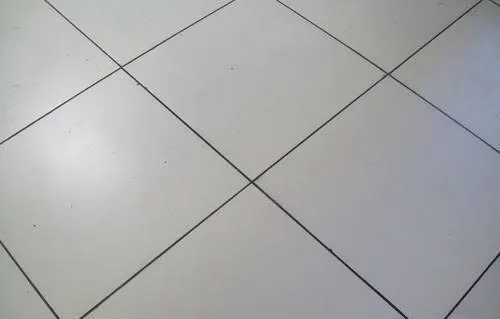Can You Use Epoxy Grout on Floor Tiles?
When it comes to flooring options, you carefully select the tiles for their durability and appeal. But have you ever considered the game-changer that is epoxy grout for your floor tiles? Before you dismiss the idea, think about the benefits it might offer. The initial cost might give you pause, but the long-term advantages could surprise you. Read Best Epoxy Grout India
Benefits of Epoxy Grout for Floors
- When considering the benefits of epoxy grout for floors, durability stands out as a key factor that sets it apart from traditional grout options. Epoxy grout is highly durable, making it an excellent choice for areas with high foot traffic or where heavy items may be moved across the floor. Its durability ensures that once installed, it can withstand the test of time without cracking or deteriorating, providing a long-lasting solution for your flooring needs.
- In addition to its durability, epoxy grout also offers exceptional stain resistance. This feature is particularly advantageous in areas prone to spills or stains, such as kitchens or bathrooms. The non-porous nature of epoxy grout prevents liquids and dirt from penetrating the grout lines, making it easier to clean and maintain the appearance of your floors over time.
Factors to Consider Before Using Epoxy
- Before proceeding with the application of epoxy grout on your floor tiles, it’s crucial to carefully evaluate specific factors that can impact the success and longevity of the installation. Firstly, consider the application suitability of epoxy grout for your specific floor type. Epoxy grout is highly recommended for areas prone to moisture, such as bathrooms and kitchens, due to its water-resistant properties. However, it may not be suitable for all types of tiles or surfaces, so ensure compatibility before proceeding.
- Secondly, durability factors play a significant role in determining the effectiveness of epoxy grout. Epoxy grout is known for its durability and resistance to stains and chemicals, making it an excellent choice for high-traffic areas. However, factors such as exposure to direct sunlight, extreme temperatures, or heavy impact can affect its longevity. Evaluate these aspects to ensure that epoxy grout is the right choice for your floor tiles and that it will withstand the conditions it will be subjected to.

Installation Process of Epoxy Grout
- Considering the factors that impact the success and longevity of your epoxy grout installation, the meticulous process of applying epoxy grout on floor tiles requires attention to detail and precision. To ensure a successful outcome, begin by mixing the epoxy grout according to the manufacturer’s instructions. Proper application is crucial; use a rubber float to spread the grout over the tiles at a 45-degree angle, pressing it into the joints to ensure full coverage. Once applied, allow the grout to set for the recommended drying time, typically around 15-30 minutes.
- After the initial drying period, use a damp sponge to wipe away excess grout from the tile surfaces, being careful not to disturb the grout lines. Rinse the sponge frequently to achieve a clean finish. As the grout continues to cure over the next 24 hours, avoid walking on the tiled area to prevent any disruptions to the drying process. By following these steps with precision and allowing for adequate drying time, you can achieve a professional-looking finish that will stand the test of time.
Maintenance Tips for Epoxy Grout
- For effective maintenance of epoxy grout, regularly clean the tiled surface using a pH-neutral cleaner and a soft brush or mop. This routine cleaning helps prevent dirt and grime buildup, keeping your grout looking fresh and ensuring its longevity. When cleaning, avoid harsh chemicals or abrasive tools that can damage the epoxy grout. For stubborn stains, a mixture of water and vinegar can be gently scrubbed onto the grout lines.
- To maintain the integrity of the epoxy grout, it’s essential to avoid using excessive water during cleaning, as this can weaken the grout over time. Additionally, sealing the grout every year can provide an extra layer of protection against stains and moisture infiltration. Properly sealed grout is more resistant to mold and mildew, prolonging the lifespan of your tiled surfaces.
Comparing Epoxy Grout to Other Options
- To make an informed decision when choosing grout for your floor tiles, understanding the unique properties and benefits of epoxy grout compared to other options is essential. Epoxy grout, known for its durability and resistance to stains, differs from traditional cement-based grouts in several ways. When comparing epoxy grout to other options, consider factors such as grout sealers and tile durability.
- Grout sealers are often required for cement-based grouts to protect against moisture penetration and staining. In contrast, epoxy grout is inherently non-porous, eliminating the need for sealers and providing superior protection against water damage and discoloration. This makes epoxy grout a low-maintenance option that retains its appearance over time.
- Moreover, epoxy grout is renowned for its exceptional durability. It’s resistant to cracking, chemical damage, and wear, ensuring a long-lasting and aesthetically pleasing finish for your tiled floors. When considering tile durability, epoxy grout stands out as a reliable choice that can withstand the test of time, making it a popular option for high-traffic areas and wet environments.
Conclusion
In conclusion, using epoxy grout on floor tiles offers numerous benefits such as durability, stain resistance, and easy maintenance. Before deciding to use epoxy grout, consider factors like the type of tiles and the amount of traffic the floor will endure. The installation process may be more involved compared to traditional grout, but the long-term benefits make it a worthwhile investment. Proper maintenance is key to ensuring the longevity and appearance of your epoxy grout floor.